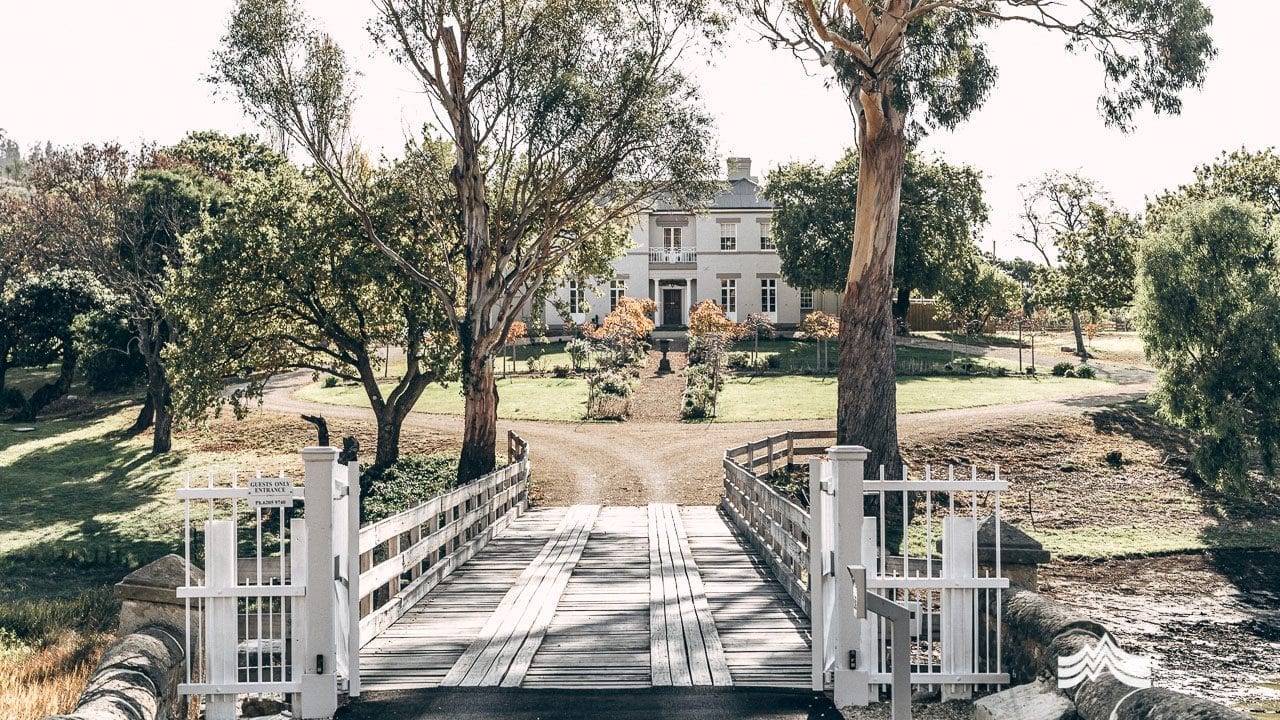Horses were the main method of transport. Convict road gangs worked in the streets. Sheep were driven through the village to sale yards. Travellers paused to rest at the inns. Wheat was ground at the mill. Such was life in the early 1800s in the township of Richmond, some 25kms from the settlement of Hobart Town.
Shaping a significant proportion of building works in and around Richmond were the Buscombe brothers, James and Henry. Henry’s reputation is laden with stories of black market trading for convict bricks and antics with a variety of young maids. James however, has gone down in history as a businessman, auctioneer, building assessor, publican and postmaster. Records show he not only erected substantial buildings in and around Hobart but left his widow, Elisabeth, a steam flour mill, The Lennox Arms Inn, nine cottages, four shops, a general store and a blacksmiths shop in Richmond following his passing.
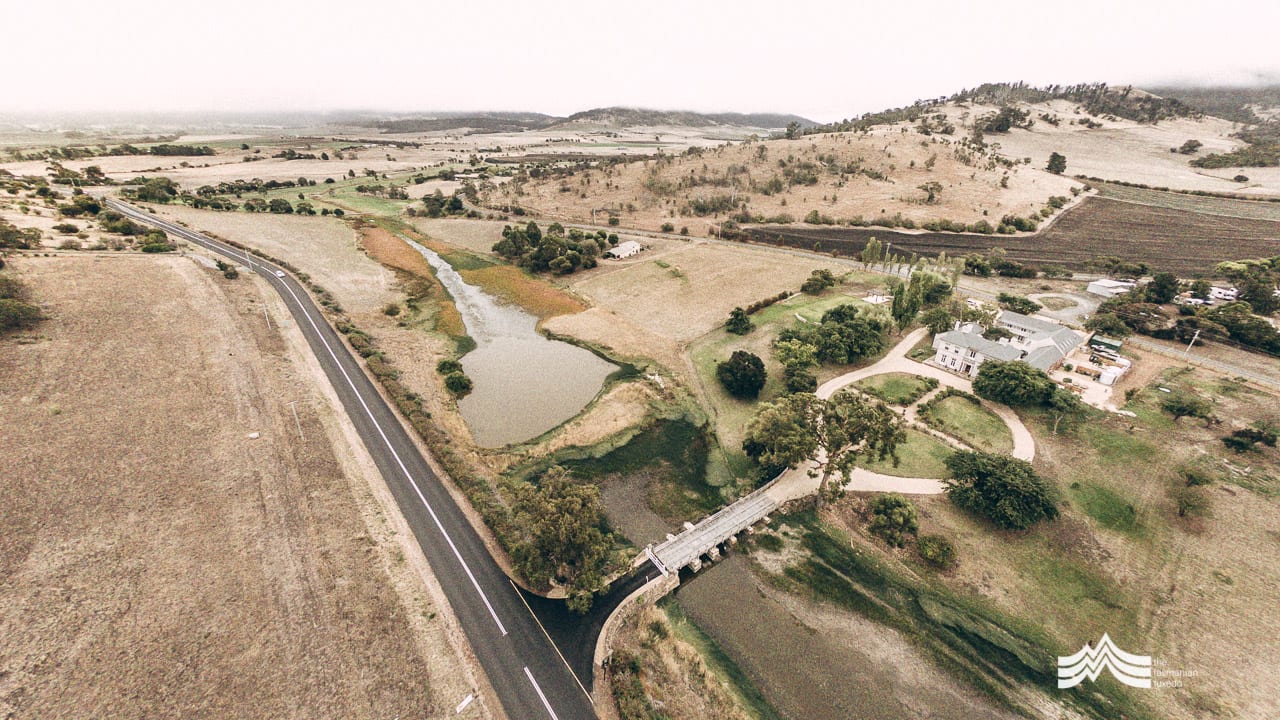
To house his own family, James Buscombe completed Prospect Villa in the early 1830s. The stately two story country residence was constructed with sandstone from the neighbouring Butcher’s Hill quarry and hand shaped with convict labour. The 18 convicts who worked on the project were housed below ground in the cellar, the same space later playing home to the estates servants in the mid-1800s. Visiting the cellar today, one gets a sense this is a space that holds some haunting memories. Today’s footprints still blend readily into the same dirt floor that has seen generations of traffic; the fireplace remains, original air vents, and solid walls muffle any possibility of sound travelling outside.
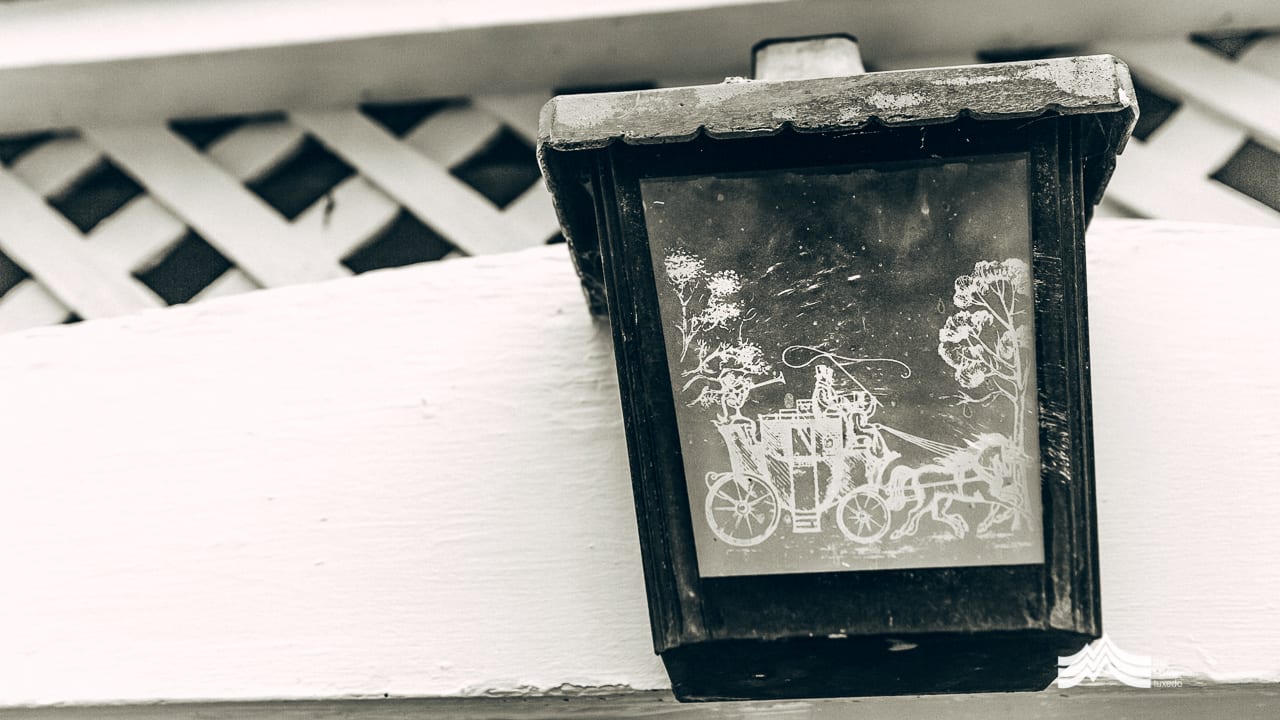
Upon completion, Prospect Villa included a coach house, stables, extensive garden and orchard. While records give little away as to the day to day life during this period of the property’s life, one can imagine a bustling estate that welcomed visiting gentry and played home to a young and energetic family.
Following the Buscombe’s passing, Prospect Villa passed between a variety of owners, including James and Elisabeth’s son and, much later in the later twentieth century, other descendants of the original owners. Along the way its name changed to Prospect House, under which it thrived in the 1980s, winning local hospitality fame as a boutique restaurant and guest house. At this time, the barn was converted to accommodation, allowing others to enjoy all the estate had to offer. Most recently spending time again in private hands, Prospect House has now fallen into the hands of well-respected Tasmanian winemakers, John and Libby Pooley.
The Pooley’s have long had a connection to the district. They are Tasmania’s first family winemaking business, and the only one to be able to boast three generations in the wine industry. Situated directly opposite Prospect House, and calling the historic Georgian property of Belmont home, they have a passion and commitment to the Coal River Valley and the production of premium cool climate wines.
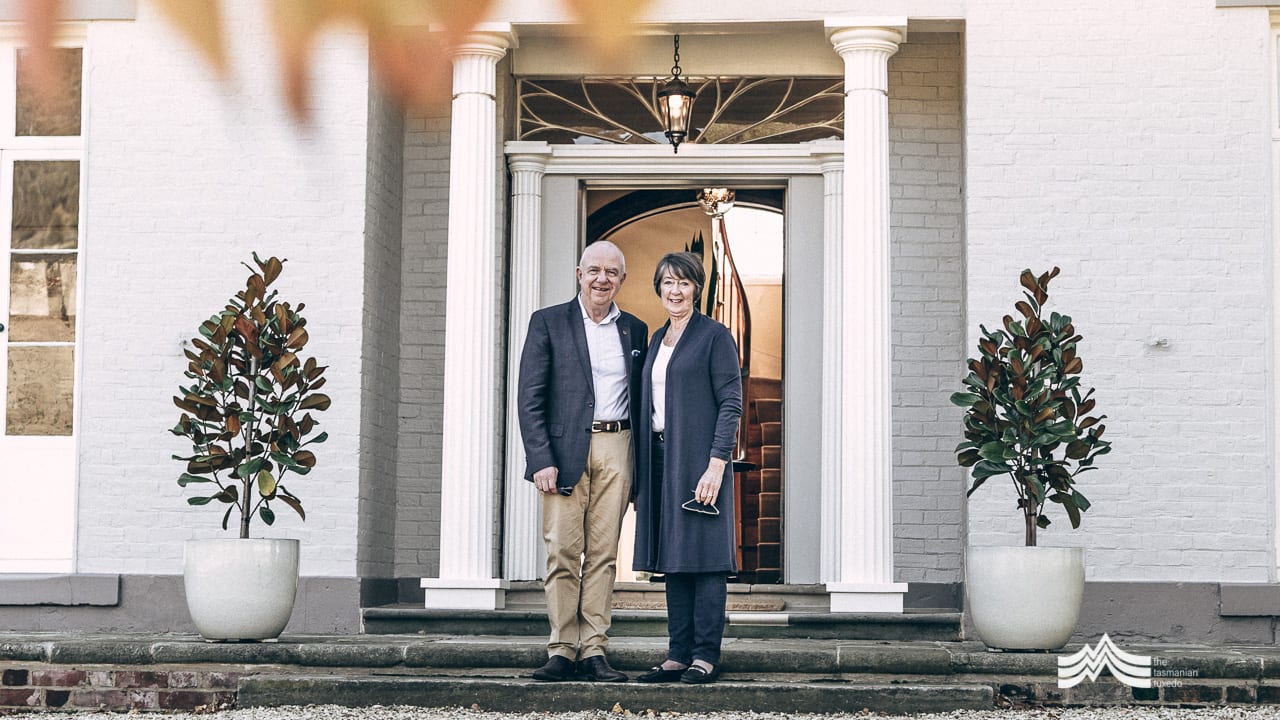
“We love this spot on the outskirts of the village,” says John. Motioning around the vineyard he continues, “This valley is perfect for winemaking and right here our vines drawing from the sandstone soils of this hillside. Our Butcher’s Hill Vineyard and Cellar Door is right across the road from Prospect House and the two properties have a lot in common. It was a natural progression for us to see it restored to its former glory, just like we have done here at Belmont.” Continuing the nod to history, John says, “The two properties have a shared history and we’ve certainly embraced that. Guests at the hotel can visit us here at the vineyard, sample the wine that comes from this unique environment, and enjoy the views from the top of Butcher’s Hill.”
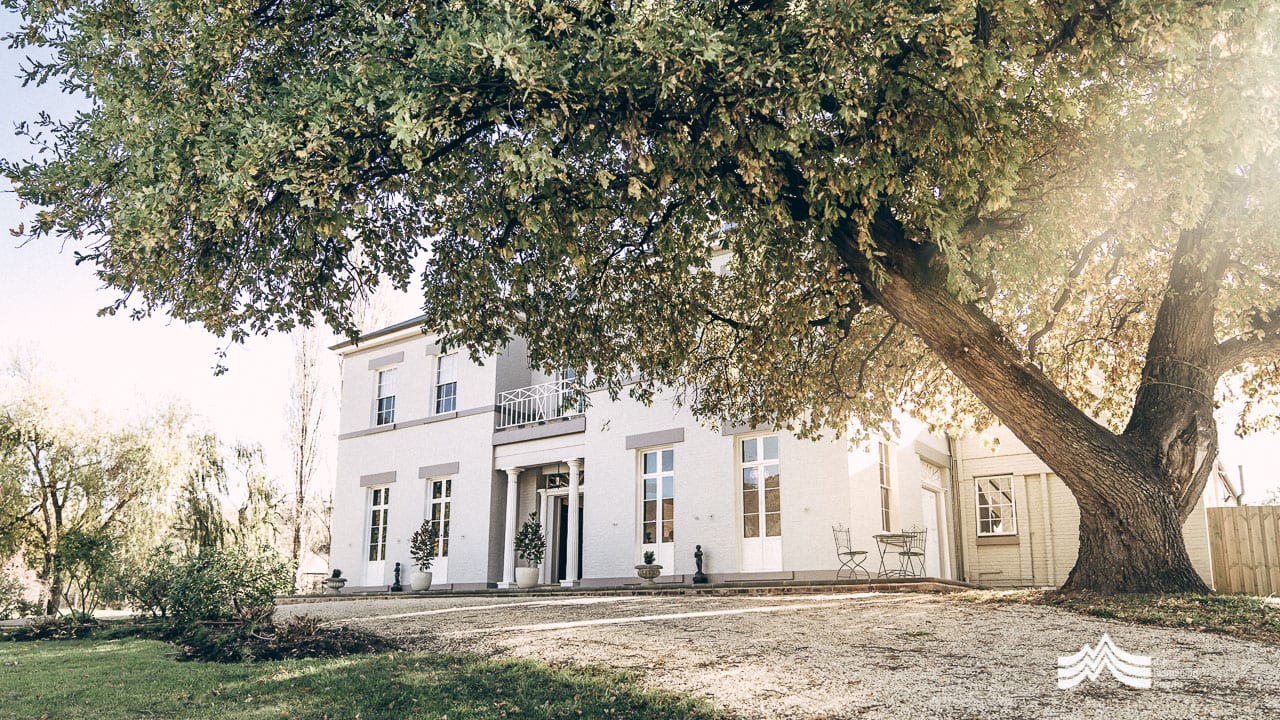
Breathing new life into Prospect House has not been easy. Explaining the process, hotel Manager Patrick Rodgers says, “It’s been a transformation from country home to beautiful hotel, and we hope the tweak to the name reflects what we now offer. At Prospect House Private Hotel, we’ve been sympathetic to the original features of the estate…there’s so much history here…we want our guests to bask in the elegance and charm of the place whilst also feeling completely at home and relaxed.”
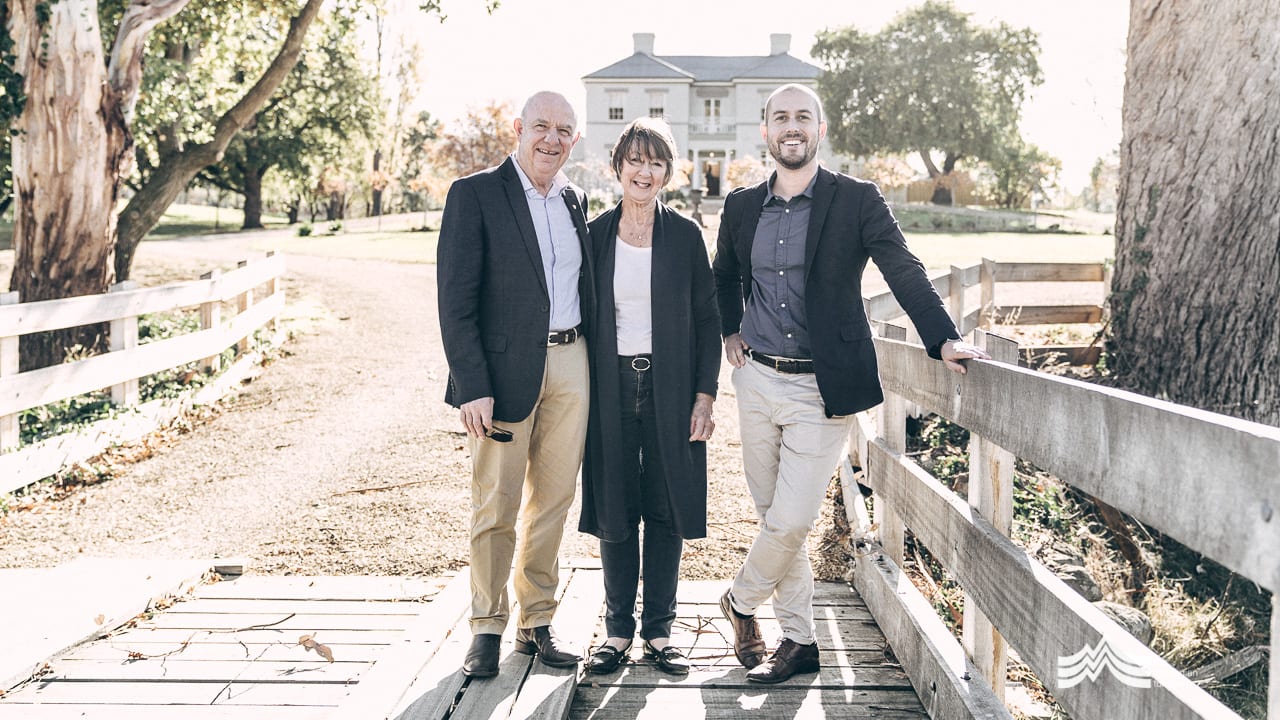
As the gravel crunches under your tyres, this grand two story Georgian manor knows how to make a marked first impression. One doesn’t have to try too hard to envisage the lady of the manor sweeping along the verandah resplendent in Victorian dress, or a crew of servants maintaining the expansive gardens beyond. Century old oak trees offer shade and ambiance as Prospect House extends her warm welcome.
With a nod to the symmetry of the era, the house invites guests to relax in the drawing room or while away hours over dinner in the intimate dining space. Beautiful cedar abounds in the architraves and doors and the solid timber floor is glorious in its condition. It’s craftsmanship that has been lost to the early 19th century.
One should be mindful to duck their head when navigating an original doorway to the internal courtyard beyond. It leads to a generous and sheltered space where one can while away the hours reading, playing croquet or warming one’s hands around the fire pit on a cool Tasmanian evening. The adjacent conservatory flooded with morning sunshine is the ideal spot to indulge in a classic country breakfast.
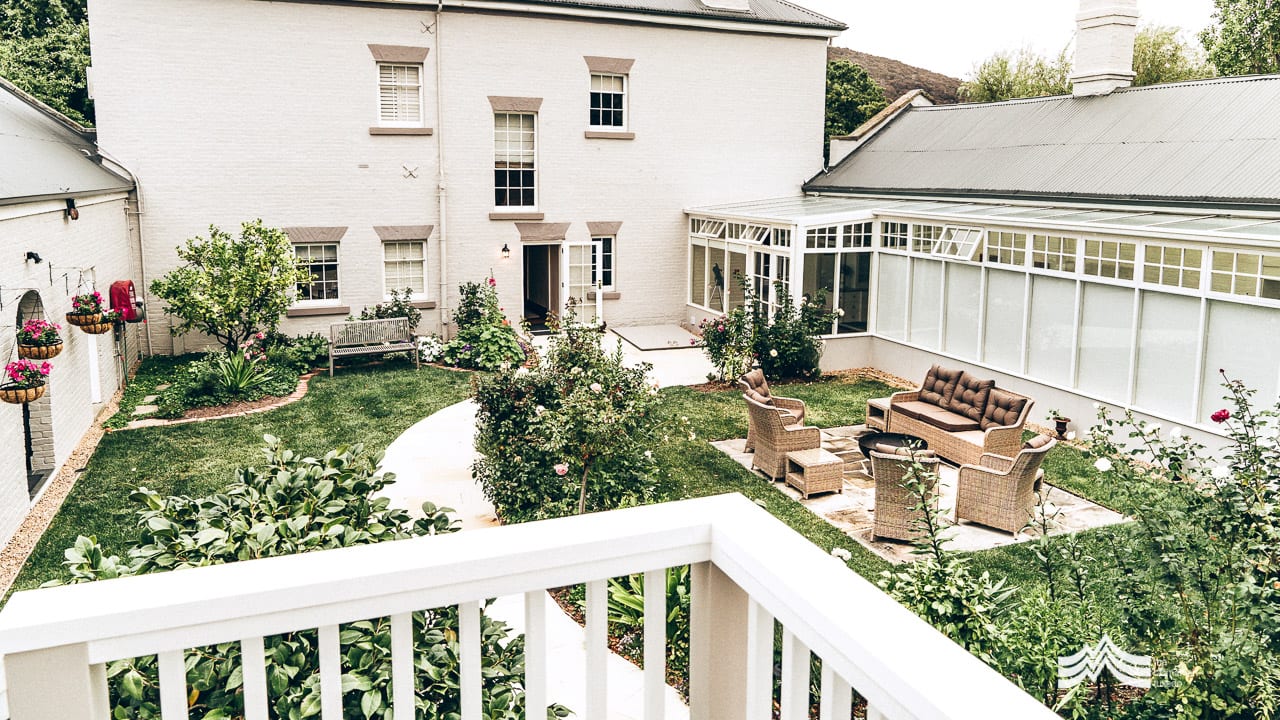
A complete refurbishment of guest quarters means that whilst you’ll be residing in a barn dating back well over a century, the interior is filled with contemporary perfection. All ten rooms have been tastefully presented for today’s explorers, each with its own distinctive palette. You’ll find all the amenities warm, comfortable and refined. It’s upmarket but certainly not fussy. Think Tasmanian artwork, quality linen and thoughtful boutique touches.
The grounds call those keen to fossick amongst history. Two stables remain in original condition, red convict brick is clearly evident at the rear of the kitchen, and beautiful stone walls and cobblestone paths are not hard to find. It’s a place that allows you to stop and ponder the times that have come before us.
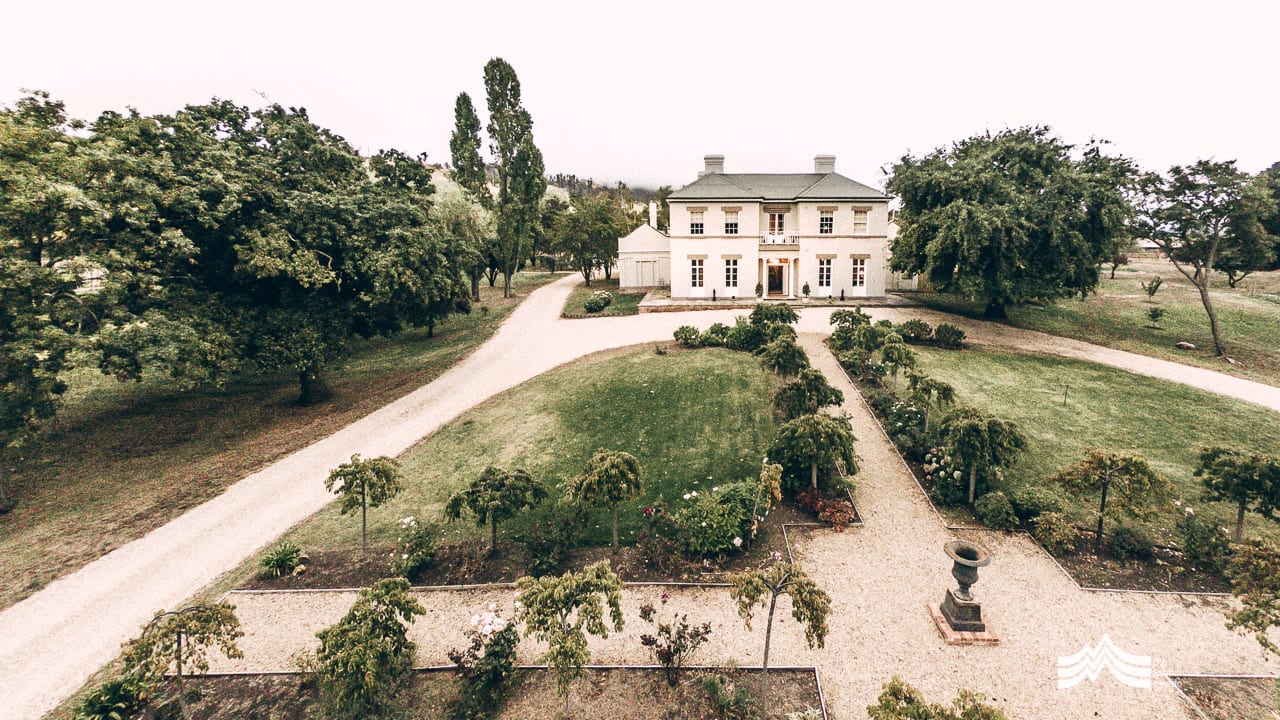
A special treat awaits for those that climb the original pine staircase of the main house. Guests can book the entire floor and enjoy a two bedroom master suite, complete with multiple bathrooms and a spacious sitting room. “It’s a favourite for small wedding parties, two couples travelling together or just for those who like that bit of extra room,” says Patrick.
A new menu speaks volumes of the Coal River Valley produce. Ingredients are largely sourced locally, including harvests directly from the kitchen garden. Whilst you can enjoy an array of fine wines, the focus is clearly on premium Tasmanian choices. A drop from the Pooley cellar allows you to taste the tones of the local soils for yourself. Harking back to hearty country fare, the meals are simple, unpretentious and elegant. “The menu is set to inspire but the portions are generous. It’s a mix that is important to us,” says Patrick smiling.
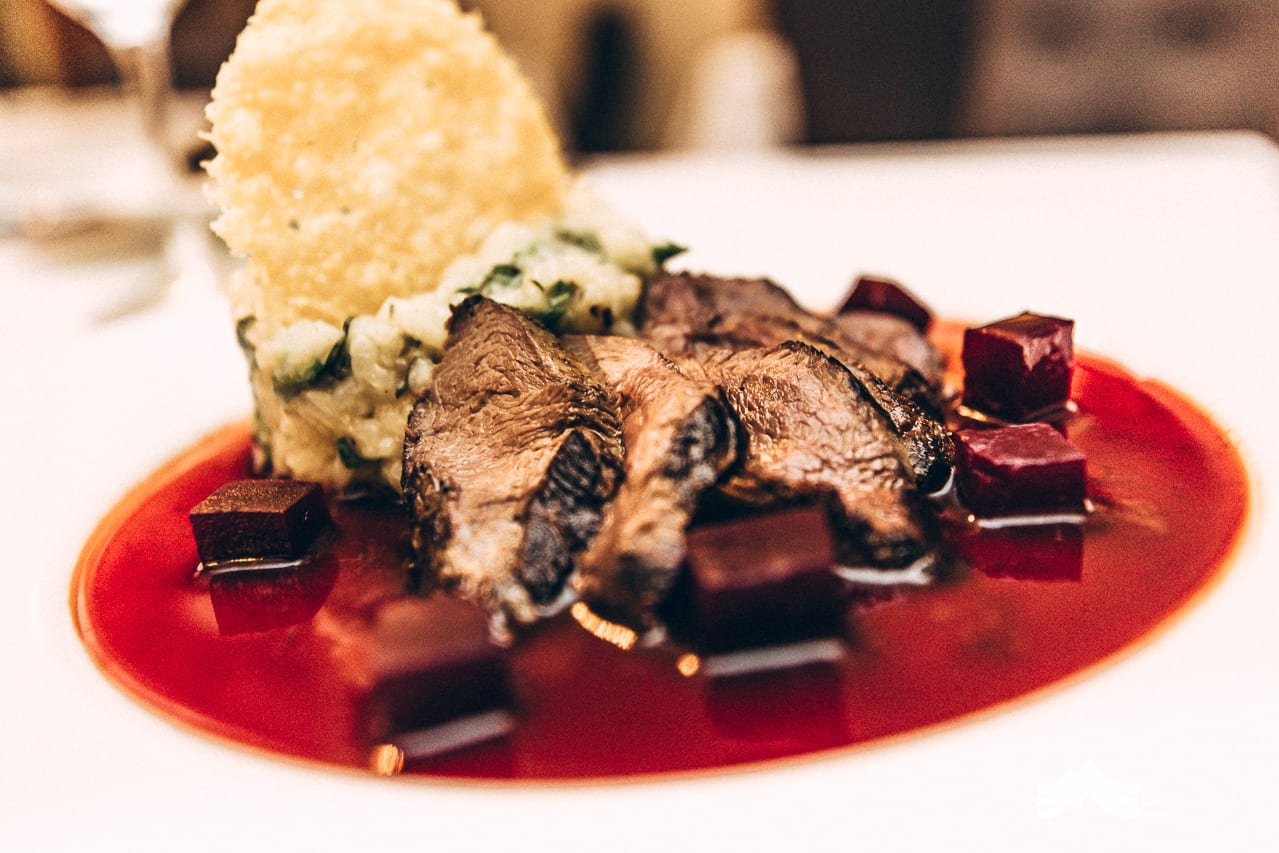
“It’s already evident that our guests are enjoying the elegant country hospitality and our commitment to genuine service,” notes Patrick. “We have a small staff providing premium and personal attention. They love going above and beyond for our guests…whether it’s a chat with the chef at dinner or a conversation with the gardener on your morning walk, you can interact as much or as little as you like. We’re a boutique hotel that delivers those little touches to make you feel special, without being intrusive. The level of connection is entirely up to you.”
Prospect House Private Hotel is an ideal base for a two or three night stay. Its location lets you escape from the city and drink in the ambience of yesteryear. It’s an easy drive south to Port Arthur, east to the coast or north through the historic midlands. A gentle 10 minute stroll through the estate grounds will have you in the heart of Richmond for a morning filled with antique stores, boutique galleries, quirky gift shops and historic attractions. Wander along the picturesque river bank and explore the very same path that the Buscombe brothers did almost two centuries ago.
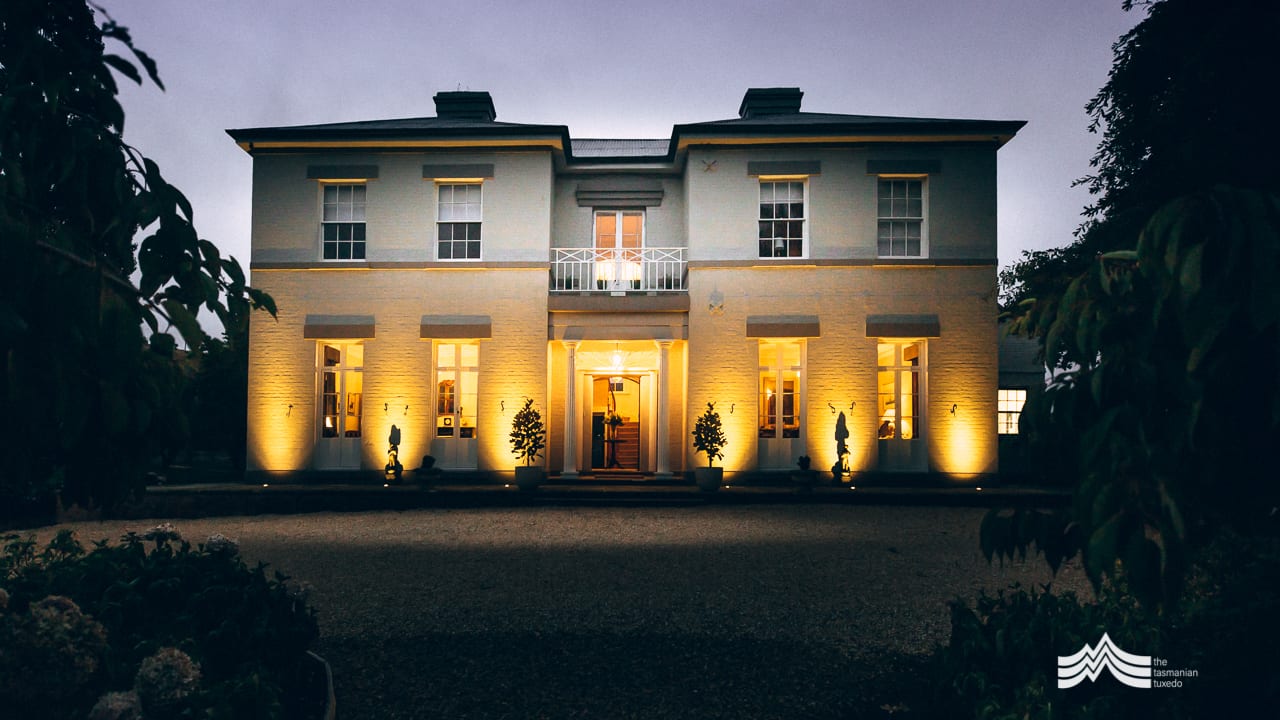
Connect with Prospect House Private Hotel via the website, or through Facebook and Instagram.
References
A social history of Richmond 1820 – 1855. Peter MacFie 2003 and 2017.
